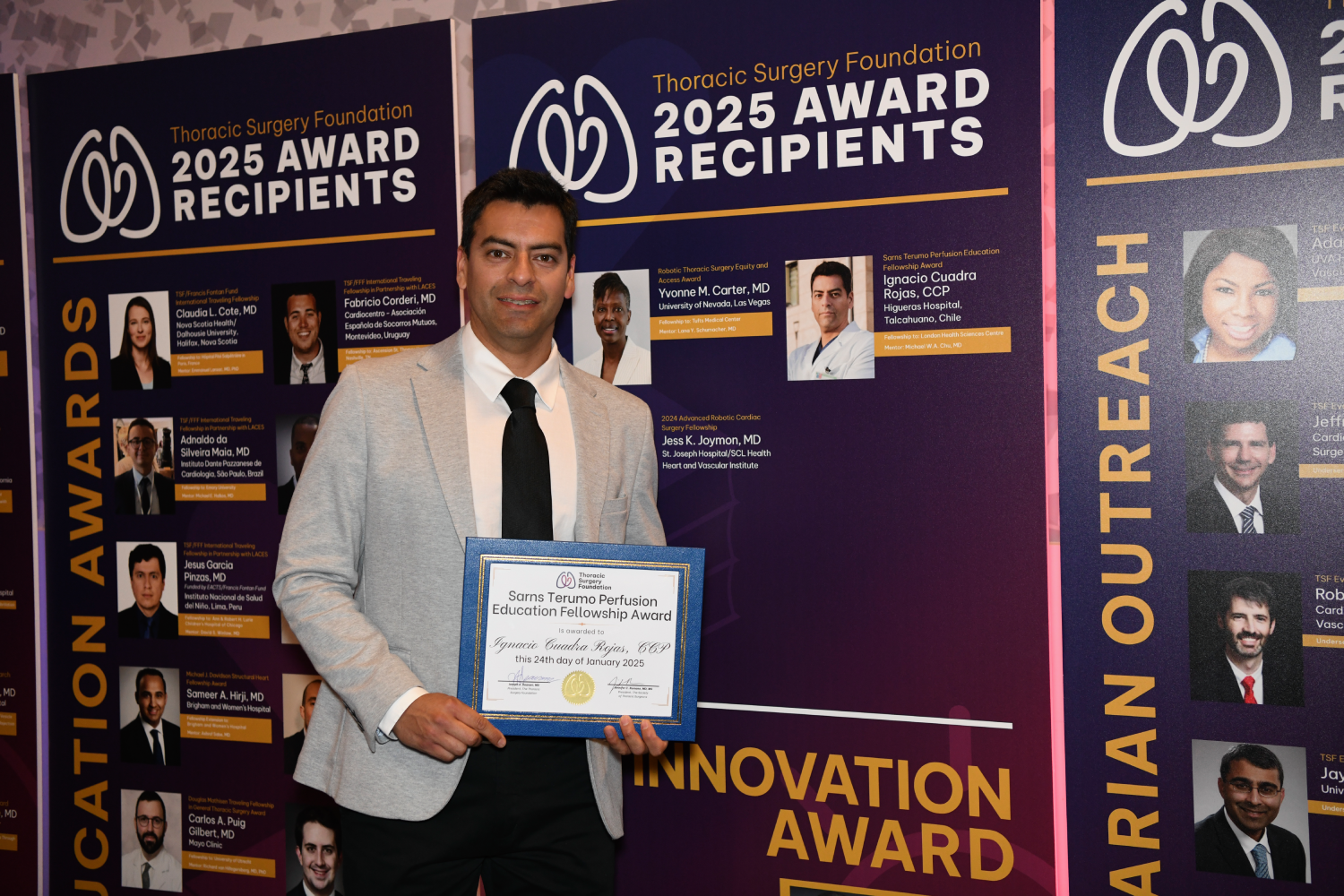Ventricular Cell Research Illuminates Mechanisms Behind Load-Induced T-Tubule Remodeling
.jpg)
With support from a TSF Research Award, Michael E. Ibrahim, MA, MBBS, PhD, explored how t-tubule remodeling can occur in the cardiac muscle cells of people with heart failure. Now, with results in hand—and an NIH award representing a first in cardiothoracic surgery—he’s defining a form of t-tubule mechanical regulation that seems to happen independently within the cell.
An Autonomous Molecular Process
Dr. Ibrahim is the director of the Mitral and Reconstructive Valve Surgery program at Penn Presbyterian Medical Center in Philadelphia. With his TSF-funded research, he sought to understand, at a molecular level, the remodeling of the t-tubule system within ventricular muscle cells that is induced by an abnormal mechanical load, and that can manifest in abnormal excitation-contraction couplings.
“Previous research has shown that abnormal mechanical load in living animals and humans damages the t-tubule network, which results in uncoupling of L-type Ca2+ channels and ryanodine receptors,” Dr. Ibrahim said.
Based on data from those earlier findings, Dr. Ibrahim’s team hypothesized that mechanisms occurring autonomously within the cells were sufficient to bring about load-induced t-tubule remodeling.
To test the hypothesis, the team used customized elastomers to apply either physiological or pathological levels of stiffness to cultured ventricular myocytes. They used either cell growth blockers or a catalyzing enzyme to manipulate the remodeling process.
From Damage to Recovery
They found that the myocytes subjected to pathologically increased stiffness showed marked decreases in density and regularity, while the luminal dimensions of their t-tubule systems increased by 26.6%.
When they treated pathologically loaded cells with taxol, t-tubule remodeling worsened, with a significant decrease in density. Meanwhile, applying tubulin-tyrosine ligase produced a significant recovery in t-tubule density in the cells cultured at pathological stiffness.
A complete summary of their results will appear in an upcoming issue of The Annals of Thoracic Surgery.
A Cardiothoracic First
The findings made possible by this TSF-funded research project have garnered attention—and additional funding—from NIH. Dr. Ibrahim’s team has been awarded a $1.6-million K99-R00 (NIH Director’s Transition to Independence Award) from the National Heart, Lung, and Blood Institute. It’s the first time this award has been bestowed on a cardiothoracic surgeon.
“The NIH Director’s K99-R00 was a dream mechanism for me, because of its mentoring opportunities and accelerant properties,” Dr. Ibrahim said. “The small list of recipients consists of the scientists I most respect in cardiovascular medicine, and I am truly honored to be the first cardiac surgeon awarded this grant.”
With his NIH-funded project, “Definition of A Cardiomyocyte-Autonomous Form of T-Tubule Mechanical Regulation,” Dr. Ibrahim’s team is conducting comprehensive experiments to discover precisely t-tubules are regulated by mechanical load, from cell to tissue levels, in human hearts.
“The t-tubules act as master regulators of cardiac contractility by modulating the gain of calcium-induced calcium release in the heart,” Dr. Ibrahim explained. “They are damaged in heart failure and states of mechanical overload. They appear to be recoverable by reducing mechanical load—such as with LVAD therapy.”
“To me, my work in the lab and OR is all tied together by a simple concept I learnt from Sir Magdi Yacoub: Nature is a lot smarter and more sophisticated than anything we can create,” he said. “Recovering natural biological function, be it of the mitral valve with repair, the aortic valve with a Ross, or the heart muscle with t-tubule therapy, is the way to address cardiovascular pathology.”
Make More Stories Like This Possible
Your gift to TSF supports cardiothoracic surgery professionals in their drive to advance heart and lung health for all. Please consider a gift today!

Make More Stories Like This Possible
Your gift to TSF supports cardiothoracic surgery professionals in their drive to advance heart and lung health for all. Please consider a gift today!

Make More Stories Like This Possible
Your gift to TSF supports cardiothoracic surgery professionals in their drive to advance heart and lung health for all. Please consider a gift today!

Make More Stories Like This Possible
Your gift to TSF supports cardiothoracic surgery professionals in their drive to advance heart and lung health for all. Please consider a gift today!


.webp)

.webp)